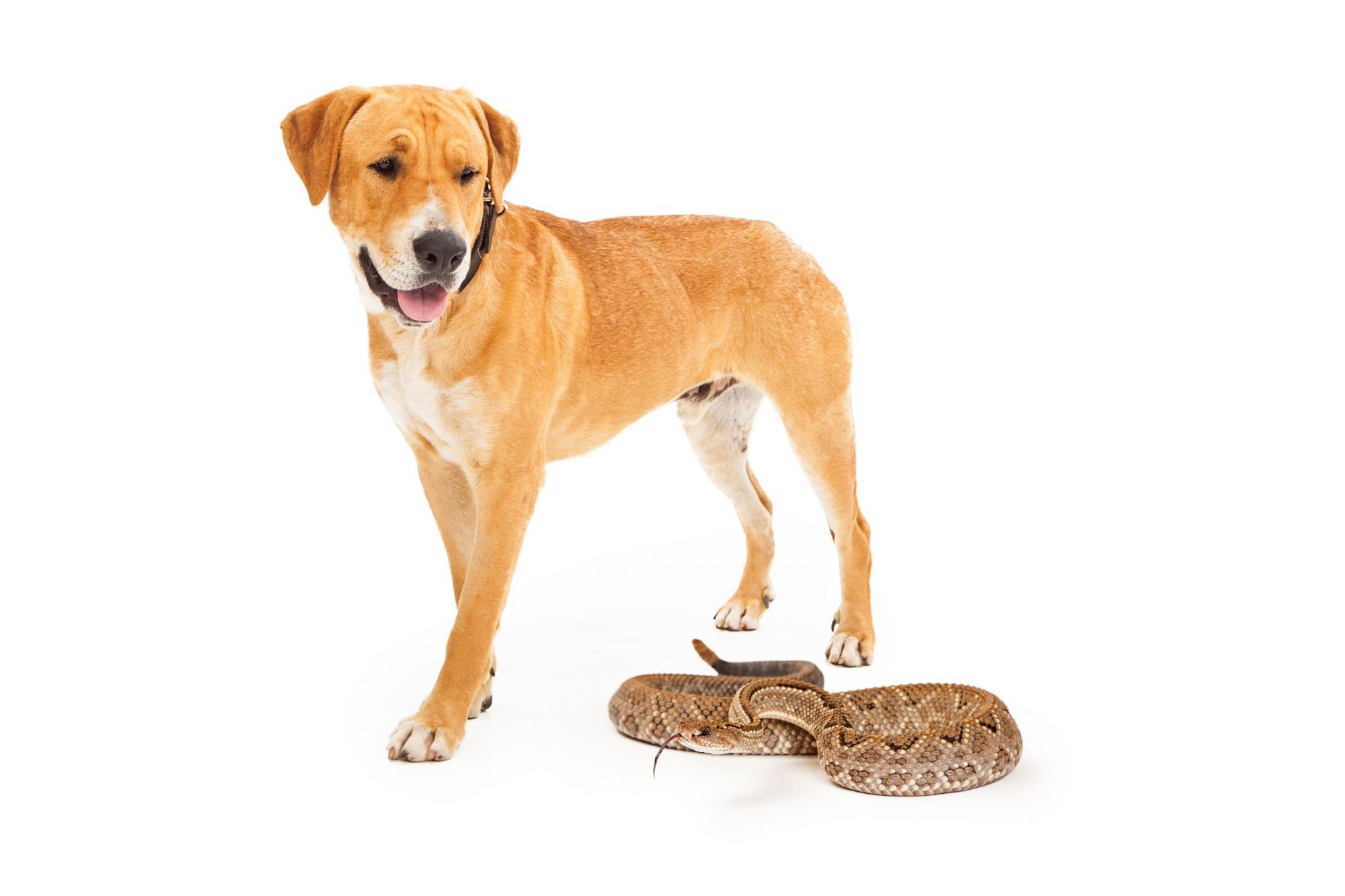As the weather warms, snakes become more active, venturing out in search of food and mates. For pet owners, this increased snake activity can raise concerns about the safety of their beloved animals. While the thought of using snake repellents to protect your property and pets is appealing, a crucial question arises: are snake repellents harmful to pets? Understanding the potential risks and pet-safe alternatives is essential for responsible pet ownership.
 Dog cautiously observing a snake, highlighting the potential danger of snakes to pets and the importance of pet-safe snake repellents.
Dog cautiously observing a snake, highlighting the potential danger of snakes to pets and the importance of pet-safe snake repellents.
Understanding the Risks Snakes Pose to Pets
Pets, especially dogs and cats with their curious nature, may not instinctively recognize the danger that snakes can present. Unlike humans who generally understand to avoid snakes, pets might approach them out of curiosity or even perceive them as prey. This can lead to dangerous encounters, particularly with venomous snakes. While snakes play a vital role in the ecosystem by controlling rodent populations and other pests, their presence near homes with pets necessitates caution.
Snakes are most active from spring through fall, a period when many pet owners and their animals spend more time outdoors. Identifying potential snake habitats around your property is the first step in minimizing risks. Snakes are attracted to areas that offer shelter and food sources, such as:
- Rock piles and formations
- Gardens and dense vegetation
- Wood and debris piles
- Crawl spaces and outbuildings
- Water features
By understanding these attractive environments, pet owners can take proactive steps to make their yards less inviting to snakes and more safe for their pets.
Are Snake Repellents Safe for Pets? Navigating Pet-Safe Options
The market offers various snake repellent products, but not all are created equal, especially when considering pet safety. Many commercial snake repellents contain naphthalene, a chemical known to be harmful and even carcinogenic. These products, while potentially effective at deterring snakes, pose a significant risk to pets who might ingest them or come into direct contact with treated areas.
Fortunately, pet owners seeking to protect their animals have access to safer, more natural alternatives. Pet-safe snake repellents prioritize the well-being of your furry companions while still effectively discouraging snakes from entering your property.
Pet-Safe Snake Repellent and Deterrent Strategies
Instead of relying on harmful chemicals, consider these pet-friendly methods to deter snakes:
-
Natural Oil Sprays: Solutions made with essential oils like cinnamon oil or clove oil can be effective and safe for pets. Mix 5-10 drops of cinnamon or clove oil with a gallon of water and spray around areas where snakes might be present. Alternatively, place cotton balls or fabric strips soaked in these diluted oils in snake-prone zones.
-
Marigold Plants: Planting marigolds around your yard can act as a natural snake deterrent. These flowers are known to repel snakes, adding beauty to your garden while providing a safe barrier.
-
Physical Barriers and Yard Maintenance: Creating physical obstacles is crucial. Install fencing at a 30-degree angle to make it harder for snakes to enter your yard. Regularly inspect your property’s perimeter and seal any cracks or crevices in foundations or walls. Maintaining a well-kept yard is also essential. Keep grass short, remove wood piles and construction debris, and reduce potential rodent attractants like bird feeders and uncovered compost heaps. By minimizing rodent populations, you indirectly reduce the food source that attracts snakes.
-
Funnel Traps: These traps offer a non-toxic way to remove snakes from your property without harming them or your pets.
Protecting Your Pet from Snake Encounters: What to Do
Even with preventative measures, snake encounters can still happen. Educating yourself on how to react is vital for your pet’s safety.
If you encounter a snake on your property, the best course of action is to leave it undisturbed and encourage it to move away on its own. You can gently spray it with a hose from a distance to encourage it to leave without posing a threat to yourself or your pet.
In the unfortunate event that your pet is bitten by a venomous snake, immediate veterinary attention is critical. Do not attempt home remedies like tourniquets, ice, or heat, as these can be harmful. Remove your pet’s collar if it’s tight to prevent breathing restriction in case of swelling and transport your pet to the nearest veterinary emergency clinic immediately.
Conclusion: Prioritizing Pet Safety and Snake Awareness
Protecting pets from potential snake encounters involves a combination of awareness, preventative measures, and choosing pet-safe deterrents. While the question “are snake repellents harmful to pets?” is a valid concern, understanding the difference between harmful chemical repellents and safer alternatives empowers pet owners to make informed decisions. By focusing on natural repellents, yard maintenance, and prompt action in case of an emergency, you can create a safer environment for your pets while coexisting with local wildlife. Remember, when in doubt or for any concerns about snake safety or potential bites, contacting your veterinarian or local animal hospital is always the best course of action.